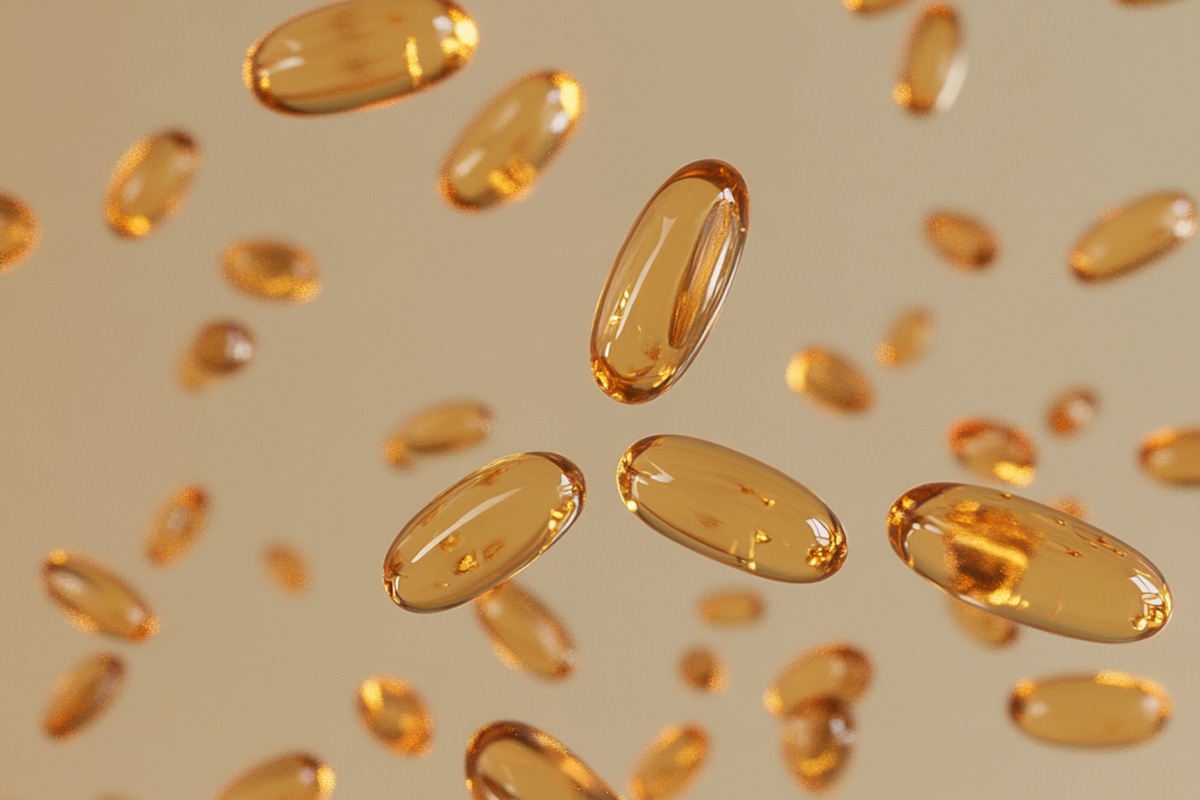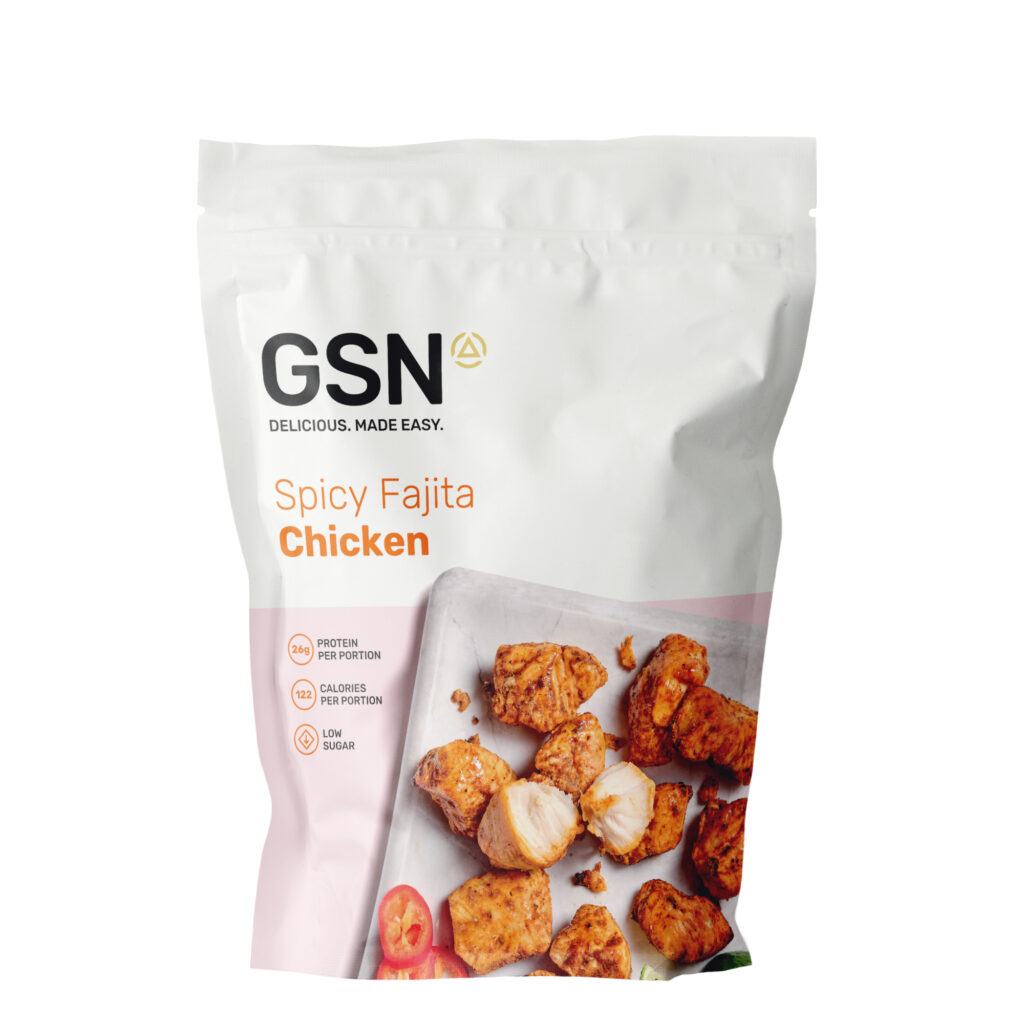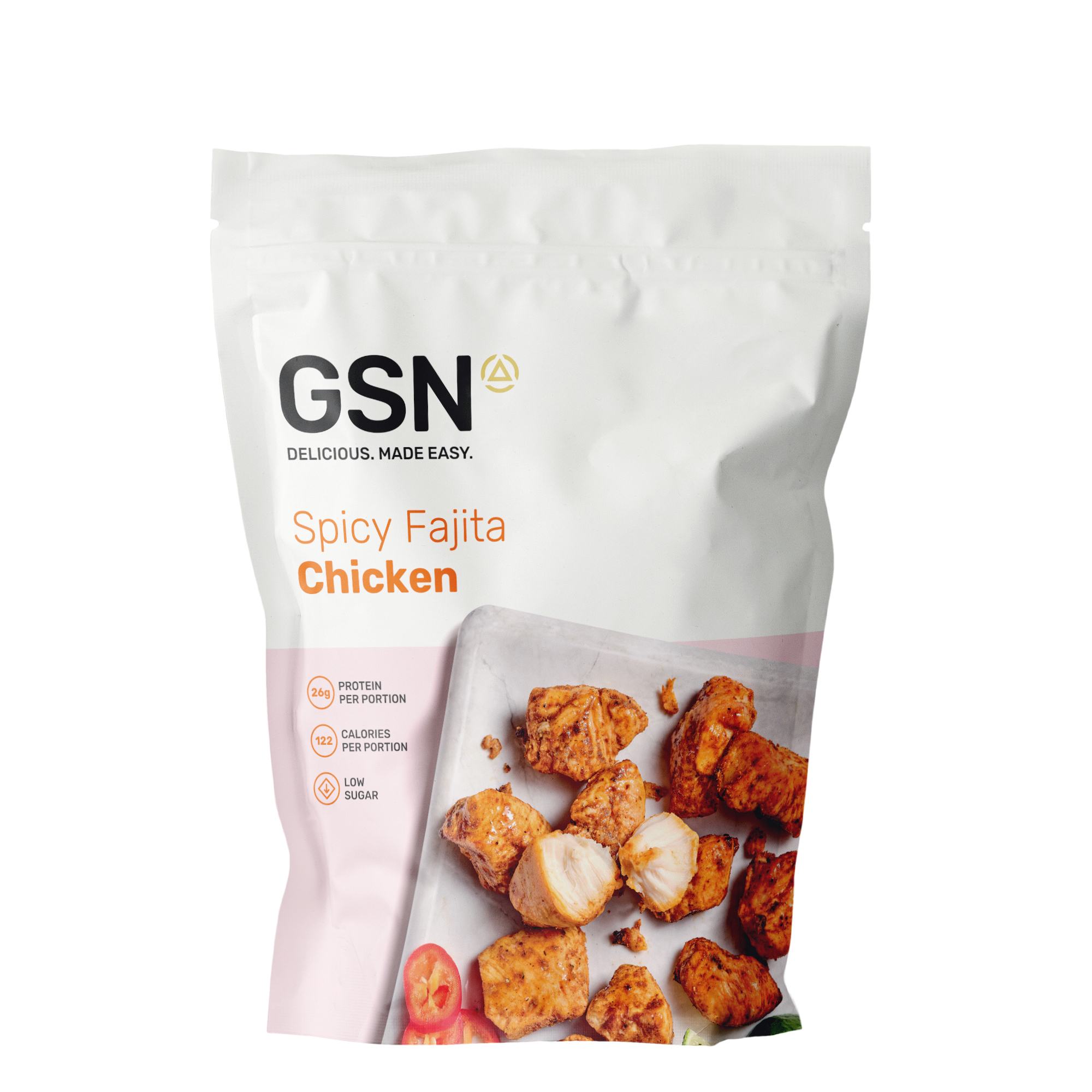Harry Lightfoot and the Role of Supplements in CrossFit Success
We’re spilling the beans… Here is the top-secret* guide to supplements in CrossFit, as used by Harry Lightfoot.
When recording for our interview series ‘No Shortcuts, The Road To Greatness‘, Harry discussed his regime of supplements. Although nothing groundbreaking, surprising or weird, we thought it deserved more time!
In this article, we’ll detail the supplements Harry is currently using while he prepares for the 2025 CrossFit Open.
Are YOU ready for February 27th?
“The CrossFit Open brings athletes of all levels together for a three-week global competition. Test your fitness, connect with the community, and find out what makes the Open unforgettable.”
*They’re not a secret, sorry.
Harry Lightfoot, is the “fittest man” in the U.K. after claiming the top spot in the CrossFit Open. He then finished 21st at the World CrossFit Games: He has a unique approach to training and nutrition.
His focus on performance, recovery, and mental endurance has propelled him to the top of the CrossFit world, and one key factor behind his success is the supplementation that supports his training…
Supplements are widely used by athletes to enhance performance, aid recovery, and optimise nutrition. But with so many options available, it can be overwhelming for newcomers and seasoned athletes alike to know where to start. In this article, we’ll break down the supplements Harry Lightfoot uses and explain their purpose, benefits, and potential drawbacks. This guide is perfect for anyone looking to boost their CrossFit performance, whether you’re just getting started or are already familiar with the world of competitive fitness.

Electrolytes – The Foundation of Hydration and Performance
What are Electrolytes?
Electrolytes are essential minerals that help maintain fluid balance in your body, regulate muscle function, and support nerve signalling. One of the key supplements in CrossFit athlete’s itinerary. Common electrolytes include sodium, potassium, magnesium, and calcium. For athletes like Harry Lightfoot, maintaining the right electrolyte balance is crucial for optimal performance during intense training sessions and competitions.
Benefits of Electrolytes
- Hydration: Electrolytes play a significant role in maintaining hydration, especially during long or intense workouts. They help your body retain water, reducing the risk of dehydration.
- Muscle Function: Proper electrolyte levels ensure muscles contract and relax efficiently, reducing the likelihood of cramps or fatigue during workouts.
- Nerve Function: Electrolytes help transmit electrical signals in the body, aiding coordination and reducing the chance of injuries caused by nerve dysfunction.
Drawbacks of Electrolytes
- Excessive Use: While electrolytes are vital for performance, taking them in excess can lead to an imbalance, which could cause issues like high blood pressure.
- Not Necessary for Everyone: If you’re not engaging in intense or prolonged exercise, you may not need to supplement electrolytes. In most cases, a balanced diet provides sufficient electrolytes.
Research and Sources:
- “The Electrolytes Boom: A Wonder Supplement – or an Unnecessary Expense?”
- “What Are Electrolytes and Why Do I Need Them?”
- “Is It ‘Boom’ or Bust for Supplements with Electrolytes?”
Creatine – The Powerhouse Supplement in CrossFit
What is Creatine?
One of the first supplements Harry mentioned was Creatine, a naturally occurring compound primarily stored in muscles. It plays a key role in producing ATP (adenosine triphosphate), the body’s energy currency, which is crucial for high-intensity activities like CrossFit. Creatine supplementation increases your muscles’ ability to store more ATP, improving strength, power, and endurance.
Benefits of Creatine
- Increased Strength and Power: Creatine supplementation has been shown to significantly improve strength and power during short, explosive movements, such as sprints or heavy lifting.
- Enhanced Muscle Growth: Creatine helps increase water retention in muscles, making them appear fuller and aiding in muscle growth.
- Cognitive Function: Some studies suggest that creatine can improve cognitive function, including memory and mental clarity, particularly when energy demands are high.
Drawbacks of Creatine
- Water Retention: While creatine can increase muscle volume, it may also cause some water retention, which could be a drawback for those concerned about weight class requirements.
- Digestive Issues: Some users report stomach discomfort or bloating when taking creatine, although this can often be mitigated by adjusting the dosage.
Research and Sources:

Beta-Alanine – The Supplement in CrossFit For Fighting Fatigue and Enhancing Endurance
What is Beta-Alanine?
Beta-alanine is a non-essential amino acid that, when supplemented, increases the production of carnosine in muscles. Carnosine acts as a buffer to hydrogen ions, which build up during high-intensity exercise and contribute to muscle fatigue. By delaying this buildup, beta-alanine helps you maintain peak performance for longer.
Benefits of Beta-Alanine
- Reduced Fatigue: Beta-alanine helps buffer lactic acid buildup, allowing athletes to perform at a higher intensity without experiencing the typical onset of fatigue.
- Improved Endurance: Research shows that beta-alanine supplementation can improve performance in activities lasting between 1-4 minutes, like CrossFit workouts or intense lifting sessions.
- Better Recovery: The reduction in fatigue means athletes can perform more sets and reps, leading to better overall training adaptations.
Drawbacks of Beta-Alanine
- Tingling Sensation: A common side effect is paresthesia, a tingling sensation in the skin, which, while harmless, can be uncomfortable for some individuals.
- Short-Term Use: While beta-alanine can improve performance, it’s not a supplement you will feel immediately; benefits accumulate over time with consistent use.
Research and Sources:
- “β-Alanine Supplementation to Improve Exercise Capacity and Performance: A Systematic Review and Meta-Analysis”
- “β-Alanine Supplementation Enhances Human Skeletal Muscle Contractile Properties”
- “β-Alanine Supplementation in Adults with Prediabetes”
Whey Protein – The Essential Post-Workout Fuel
What is Whey Protein?
Whey protein is a high-quality protein derived from milk. It’s a complete protein, meaning it contains all nine essential amino acids that your body can’t produce on its own. It’s especially popular in the fitness community due to its fast absorption rate, making it an excellent option for post-workout recovery.
Benefits of Whey Protein
- Muscle Repair and Growth: Whey protein is rich in leucine, an amino acid that plays a vital role in muscle protein synthesis, making it ideal for muscle recovery and growth.
- Fast Absorption: Because it’s quickly digested, whey protein helps deliver amino acids to muscles right after a workout, maximizing recovery and reducing muscle breakdown.
- Supports Immune Function: Whey also contains immunoglobulins that support the immune system, making it an excellent supplement for overall health.
Drawbacks of Whey Protein
- Lactose Sensitivity: Some individuals may experience digestive discomfort if they are lactose intolerant, though many whey protein isolates have minimal lactose content.
- Not Vegan-Friendly: As a dairy-based protein, whey isn’t suitable for those following a plant-based diet.
Research and Sources:
- “Whey Protein Supplementation Enhances Whole Body Protein Metabolism and Performance Recovery after Resistance Exercise”
- “Whey Protein Improves Muscle Recovery and Reduces Muscle Damage After Intense Resistance Training”
- “Whey Protein Supplementation Enhances Performance in Both Resistance and Endurance Exercise”

BCAAs – The Building Blocks of Muscle
What are BCAAs?
Branched-chain amino Acids (BCAAs) include leucine, isoleucine, and valine, three essential amino acids that play a key role in muscle recovery and growth. Unlike most amino acids, BCAAs are metabolised directly in the muscles, making them ideal for athletes looking to maintain or build lean muscle mass.
Benefits of BCAAs
- Muscle Protein Synthesis: Leucine, one of the BCAAs, is particularly known for stimulating muscle protein synthesis, making it essential for muscle growth.
- Reduced Muscle Soreness: BCAAs may help reduce the severity and duration of delayed onset muscle soreness (DOMS), improving recovery after intense workouts.
- Prevents Muscle Breakdown: BCAAs can prevent muscle catabolism, which is especially useful during periods of calorie deficit or intense training.
Drawbacks of BCAAs
- Limited Effects Without Other Amino Acids: While BCAAs are essential, they are not a complete source of amino acids. Consuming them alone might not provide all the necessary nutrients for optimal muscle repair.
- Possible Imbalance: Excessive BCAA supplementation can lead to imbalances in other amino acids, potentially affecting metabolic processes.
Research and Sources:
- “BCAAs: Benefits of Branched-Chain Amino Acids”
- “BCAAs Supplementation Improves Endurance Performance”
- “Branched-Chain Amino Acids and Muscle Recovery”
Caffeine – The Energy Booster for Peak Performance
What is Caffeine?
Caffeine is a stimulant commonly found in coffee, tea, and various energy drinks. It works by stimulating the central nervous system, increasing alertness, and reducing the perception of effort during exercise, which is why it’s a go-to supplement for athletes, including Harry Lightfoot.
Benefits of Caffeine
- Increased Endurance: Caffeine has been shown to enhance endurance by delaying the onset of fatigue and increasing fat oxidation, allowing the body to use fat for fuel more efficiently.
- Improved Focus and Mental Clarity: Beyond physical performance, caffeine helps sharpen focus and mental clarity, which is crucial during complex CrossFit movements and competitions.
- Strength Gains: Research indicates that caffeine can also improve strength and power output during short-duration, high-intensity activities like sprinting or weightlifting.
Drawbacks of Caffeine
- Potential for Tolerance: Over time, the body can develop a tolerance to caffeine, reducing its effectiveness as a performance enhancer.
- Possible Jitters or Anxiety: For some individuals, caffeine can cause jitteriness or heightened anxiety, especially if consumed in large amounts or close to competition.
Research and Sources:
- “Prevalence of Dietary Supplement Use among Athletes Worldwide: A Scoping Review”
- “Caffeine and Performance in Sport: An Updated Review”
- “Caffeine Supplementation and Performance: A Meta-Analysis of Controlled Trials”
Fish Oil – The Anti-Inflammatory Fat for Joint and Heart Health
What is Fish Oil?
The final item in our list of supplements used by Harry Lightfoot for CrossFit performance is Fish oil, which is rich in omega-3 fatty acids, particularly EPA and DHA, which have well-documented benefits for heart health, brain function, and reducing inflammation. For CrossFit athletes, these benefits are essential for recovery, joint health, and overall performance.
Benefits of Fish Oil
- Reduced Inflammation: Omega-3 fatty acids help reduce muscle soreness and inflammation, which is crucial for recovery after intense workouts.
- Joint Health: Fish oil supports joint function and can reduce the discomfort associated with high-impact training, especially important for athletes involved in dynamic movements like CrossFit.
- Cognitive Function: Omega-3s also support brain health, improving focus and mental clarity during training and competition.
Drawbacks of Fish Oil
- Digestive Upset: Some individuals may experience digestive discomfort or a fishy aftertaste from fish oil supplements.
- Heavy Metals: If not sourced properly, fish oil can contain contaminants such as mercury, making it essential to choose a high-quality supplement.
Research and Sources:

To follow Harry on his journey through this year’s Crossfit Open, head to our dedicated page for ‘No Shortcuts, The Road to Greatness’, here.

References
- Bupa UK (2022) ‘What are electrolytes and why do I need them?’. Available at: https://www.bupa.co.uk/newsroom/ourviews/what-are-electrolytes
- The Guardian (2024) ‘The electrolytes boom: a wonder supplement – or an unnecessary expense?’. Available at: https://www.theguardian.com/lifeandstyle/2024/sep/30/the-electrolytes-boom-a-wonder-supplement-or-an-unnecessary-expense
- Rain Nutrience (2024) ‘Is it ‘Boom’ or Bust for Supplements with Electrolytes?’. Available at: https://rainuk.com/posts/is-it-boom-or-bust-for-supplements-with-electrolytes
- University of Essex (2023) ‘Creatine Supplements: What the Research Says About How They Can Help You Get in Shape’. Available at: https://www.essex.ac.uk/blog/posts/2023/01/19/creatine-supplements-what-the-research-says-about-how-they-can-help-you-get-in-shape
- UK National Health and Care Excellence (2023) ‘Creatine Supplementation and Improved Cognitive Function’. Available at: https://www.gov.uk/government/publications/uknhcc-scientific-opinion-creatine-supplementation-and-improved-cognitive-function/uknhcc-scientific-opinion-creatine-supplementation-and-improved-cognitive-function
- Rawson, E. S., et al. (2007) ‘Creatine Supplementation with Specific View to Exercise/Sports Performance’, *Nutrition*, 23(8-9), pp. 752-758. Available at: https://pubmed.ncbi.nlm.nih.gov/17618910/
- Hobson, R. M., et al. (2012) ‘β-Alanine Supplementation to Improve Exercise Capacity and Performance: A Systematic Review and Meta-Analysis’, *Journal of the International Society of Sports Nutrition*, 9(1), p. 48. Available at: https://pubmed.ncbi.nlm.nih.gov/27797728/
- Harris, R. C., et al. (2019) ‘β-Alanine Supplementation Enhances Human Skeletal Muscle Contractile Properties’, *Amino Acids*, 51(6), pp. 897-911. Available at: https://pubmed.ncbi.nlm.nih.gov/25539942/
- Health Research Authority (2023) ‘β-Alanine Supplementation in Adults with Prediabetes’. Available at: https://www.hra.nhs.uk/planning-and-improving-research/application-summaries/research-summaries/%CE%B2-alanine-supplementation-in-adults-with-prediabetes/
- Schiavo, L., et al. (2024) ‘Adding Branched-Chain Amino Acids and Vitamin D to Whey Protein Is More Effective than Protein Alone in Preserving Fat Free Mass and Muscle Strength in the First Month after Sleeve Gastrectomy’, *Nutrients*, 16(10), p. 1448. Available at: https://pubmed.ncbi.nlm.nih.gov/38794686/
- Medical News Today (2018) ‘BCAAs: Benefits of Branched-Chain Amino Acids’. Available at: https://www.medicalnewstoday.com/articles/324605
- Rawson, E. S., and Volek, J. S. (2003) ‘Creatine Supplementation and Exercise Performance’, *Journal of Strength and Conditioning Research*, 17(4), pp. 699-708. Available at: https://pubmed.ncbi.nlm.nih.gov/14636184/












